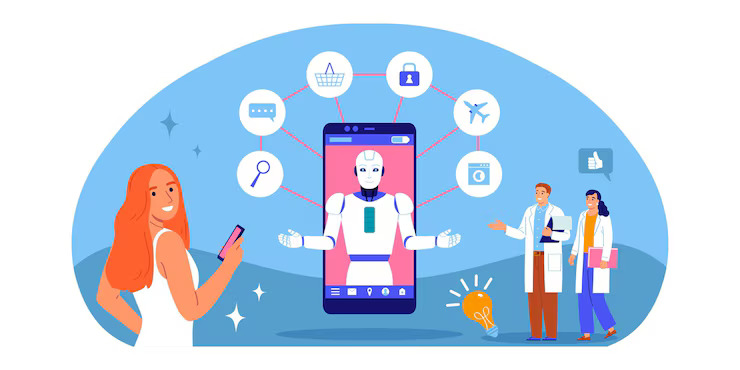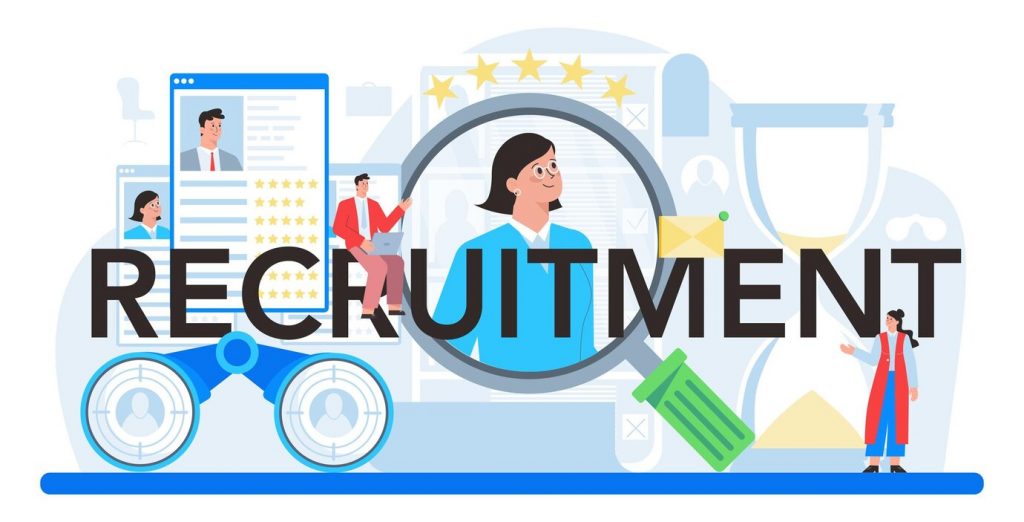Introduction
The healthcare sector is in the midst of a staffing crisis. According to the World Health Organization, the global shortage of healthcare workers could reach 10 million by 2030. Meanwhile, burnout, high turnover, and growing patient demands are pushing hospital systems to overhaul how they attract and retain talent.
Traditional hiring methods are no longer enough. Resume reviews, manual interview scheduling, and unstructured evaluation models waste precious time. More importantly, they can lead to poor-fit hires in roles where quality of care is on the line.
Enter AI in Healthcare Hiring—a powerful new force reshaping medical recruitment. By automating the most time-consuming tasks, surfacing best-fit candidates faster, and enabling more objective evaluations, AI recruiting tools in healthcare are proving to be critical infrastructure in a fast-evolving industry. Smart hospitals are already leveraging these tools not just to fill positions—but to future-proof their workforce.
Also Read: Top AI Interview Platforms in 2025: Features & Comparison
Why the Healthcare Sector Needs AI in Recruitment
Time is Critical. AI is the Accelerator.
In healthcare, every minute matters—both in the emergency room and the recruitment office. Whether you’re managing a small rural clinic or a multi-location hospital network, every delay in hiring impacts patient care and staff morale.
A study by AMN Healthcare found the average time to fill a nursing role is 49 days—far too long during a staffing shortage. According to the Association for Advancing Physician and Provider Recruitment (AAPPR), the average time to fill a physician role is a staggering 180 days.
These delays are no longer acceptable. In departments where minutes can mean lives, healthcare institutions need intelligent hiring for the healthcare sector that can:
- Quickly identify top candidates amid a sea of applicants.
- Accelerate credentialing and background verification.
- Reduce the burden on overwhelmed HR teams.
AI recruitment tools are uniquely positioned to meet these demands. Algorithms can process thousands of resumes in seconds, assess candidate speech patterns in video interviews, and flag alignment with critical soft skills like empathy, adaptability, and team collaboration.
Rising Talent Wars
Compounding the urgency is competition. McKinsey reports that 45% of nurses say they’re likely to leave their role within the next year. With a shrinking talent pool and heightened demand, hospitals are in a battle to attract and retain top clinical and administrative staff.
In addition, private health tech firms, startups, and global pharmaceutical companies are aggressively recruiting top-tier talent with attractive compensation and flexible working models. For public hospitals and under-resourced facilities, keeping up requires better tools—not just better salaries.
AI offers a competitive edge—those who deploy AI recruiting tools in healthcare early will win the race for top-tier medical talent.
Also Read: Top LinkedIn Candidate Sourcing Strategies for Hiring Success
What is AI in Healthcare Hiring?
Smarter Tech for Safer Staffing
AI in healthcare hiring is not about replacing HR teams—it’s about empowering them with data-driven tools to make faster, smarter, and fairer decisions.
Common functions include:
- Resume Screening: AI filters applicants by parsing CVs, identifying credentials, certifications, and relevant experience.
- Video Interview Analysis: Natural Language Processing (NLP) and facial recognition assess communication skills, emotional intelligence, and confidence.
- Sentiment Analysis: AI identifies subtle cues in tone, language, and demeanor to determine candidate disposition and alignment with team culture.
These technologies integrate seamlessly with Applicant Tracking Systems (ATS) and Learning Management Systems (LMS), giving HR teams a 360-degree view of the hiring funnel.
AI systems can also flag inconsistencies, detect coaching in responses, and suggest questions tailored to candidate profiles, improving decision-making quality.
Also Read: Interview Simulation: How Practice can Improve Your Job Success
JobTwine in Action
JobTwine’s AI-powered interview simulation tool goes a step further. It recreates real-world healthcare scenarios—like triaging a critical patient or navigating a difficult conversation with a family—and measures a candidate’s decision-making and communication in real time. This creates a high-fidelity hiring signal that goes beyond resumes.
Healthcare recruiters using JobTwine can compare candidates on standardized simulations, ensuring decisions are based on ability—not assumptions. For roles requiring split-second judgment and patient empathy, this insight is invaluable.
Top Benefits of AI Interview Platforms in Healthcare
1. Speed Without Compromise
In a high-demand sector like healthcare, speed must not come at the cost of quality.
According to Ideal.com, AI can reduce resume screening time by up to 75%, freeing up recruiters to spend more time on candidate engagement. Scheduling tools powered by AI can coordinate interviews across time zones and clinician shifts in minutes, rather than hours or days.
This level of automation accelerates time-to-hire while maintaining a high bar for candidate quality.
2. Reduce Unconscious Bias
Bias in healthcare hiring leads to homogenous teams and lost opportunities. AI helps level the playing field:
- Tools like JobTwine anonymize candidate data during screening.
- Algorithms standardize interview scoring.
- Video analytics reduce “gut feeling” evaluations.
When bias is reduced, hospitals can build more diverse teams—linked in numerous studies to better patient outcomes and higher staff retention.
3. Improve Hiring Accuracy
AI scoring is based on thousands of data points:
- Word choice
- Tone and pace of speech
- Behavioral patterns
This enables recruiters to make high-confidence decisions based on measurable criteria—critical when hiring for high-stakes roles like ER nurses or ICU physicians.
Accuracy also improves onboarding success. When hires are made based on skills and real-world behavior simulations rather than CV fluff, hospitals see lower turnover and better long-term performance.
4. Save Administrative Time
Healthcare HR teams juggle background checks, compliance forms, credential verification, and more. AI helps by automating:
- Resume parsing
- Candidate communications
- Interview scheduling
This allows recruiters to focus on what matters: human connection, cultural fit, and organizational alignment. It also reduces burnout among HR professionals, who are often under as much pressure as clinical teams.
Also Read: AI in Hiring: How Companies Use Predictive Analytics to Find Top Talent
Must-Have AI Interview Software for Healthcare Hiring
Key Features to Look For:
- HIPAA-compliant architecture
- Simulation-based interviews for clinical roles
- Structured scoring frameworks
- Bias detection modules
- Multilingual capabilities
- EHR integration options
Platforms must be flexible enough to handle specialty roles, scalable across multiple locations, and transparent in how they process candidate data.
Comparing Top AI Tools
|
Platform |
Key Features |
Ideal For |
|
JobTwine |
Simulation-based interviews, bias-aware scoring, structured frameworks |
Hospitals, health tech, nursing schools |
|
HireVue |
Video interview AI, enterprise integrations |
Large systems with high-volume hiring |
|
ModernHire |
Predictive analytics, voice analysis |
Physician and specialty roles |
|
Eightfold.ai |
Talent rediscovery, diversity insights |
Systems with legacy applicant databases |
JobTwine stands out for its healthcare-specific modules—custom simulations tailored to real medical scenarios, designed by clinical experts. It empowers HR teams to identify top performers before they ever step into a patient setting.
How AI Tools Improve Talent Acquisition in Healthcare
Real-World Impact
Let’s look at the numbers:
- Mount Sinai Health System implemented AI-based screening and cut nurse hiring time by 30%.
- Kaiser Permanente reported improved retention among roles hired through AI-augmented assessments.
- Cleveland Clinic used video interview analytics to reduce unconscious bias, resulting in a 12% increase in underrepresented hires in one year.
These aren’t pilot projects—they’re the new baseline for modern healthcare hiring.
Use Cases Across Roles:
- Doctors: Evaluate diagnostic reasoning and bedside manner via video-based simulations.
- Nurses: Test for clinical prioritization, patient empathy, and teamwork.
- Tech Staff: Screen for IT credentials and scenario handling.
- Admin Roles: Assess communication, task management, and adaptability.
Hospitals adopting AI tools early are reporting faster fills, stronger teams, and higher staff morale. It’s not about replacing recruiters—it’s about giving them superpowers.
Also Read: Cultural Sensitivity in Hiring: Why it Matters in a Global Workforce
Challenges and Considerations in AI-Driven Healthcare Hiring
1. Compliance and Privacy
Healthcare operates under strict regulations:
- HIPAA compliance is non-negotiable. Any AI platform must ensure secure handling of candidate data.
- Fair Credit Reporting Act (FCRA) guidelines must be followed when using predictive analytics in background checks.
Institutions must work with vendors who prioritize ethical AI use, data transparency, and compliance documentation.
2. Training HR Teams
AI is only as good as its users:
- HR teams need training on how to interpret AI recommendations.
- Bias mitigation requires ongoing calibration of algorithms.
- Recruiters must learn how to balance automation with empathy.
Without this training, organizations risk over-relying on tools or misusing outputs.
3. Balancing Tech with Human Judgment
AI helps shortlist candidates—but final decisions still require empathy, culture alignment, and leadership instinct. Successful teams combine AI precision with human insight.
Regular audits, human-in-the-loop review processes, and feedback loops are critical to avoiding automation overreach.
Also Read: Diversity, Equity, and Inclusion (DEI) in Hiring: Strategies for Success
Future of AI in Healthcare Recruitment
1. Predictive Hiring
Imagine knowing which candidates are likely to succeed before Day One.
Predictive hiring tools analyze:
- Past performance data
- Retention trends
- Skill-to-role match probabilities
Early adopters like Johns Hopkins Medicine are already using predictive hiring to improve long-term outcomes.
2. AI-Integrated Onboarding
AI doesn’t stop at the offer letter:
- Personalized onboarding plans based on learning styles
- Chatbots for FAQs and compliance training
- Smart nudges for continuous learning
These tools reduce first-year turnover and shorten the ramp-up period for new staff.
3. Integration with EHR Systems
The next frontier is seamless integration:
- EHR + AI hiring tools = Instant credential verification
- Streamlined onboarding tied directly to clinical systems
- Better alignment of roles with facility needs
Also Read: AI in Healthcare Hiring: How Hospitals Use Smart Interviewing Tools
Final Thoughts: Should Hospitals Adopt AI for Hiring?
The data speaks for itself—AI in healthcare hiring is not optional; it’s essential. Hospitals that delay adoption will face longer time-to-hire, lower talent retention, and competitive disadvantages in a sector where speed and accuracy are everything.
JobTwine is already helping forward-thinking healthcare providers build more agile, inclusive, and high-performing teams. With tools that simulate real-world medical environments, detect bias, and offer measurable evaluation metrics, JobTwine bridges the gap between smart technology and human empathy.
The future of healthcare hiring is AI-powered. Those who adopt early will lead not just in recruitment—but in patient care, workforce resilience, and innovation.
Frequently Asked Questions:
1. What are the best AI tools for hiring in healthcare?
Top AI tools include JobTwine (for structured interview simulations), HireVue (for enterprise video interviews), and ModernHire (for predictive analytics).
2. Is AI hiring legal in the healthcare industry?
Yes—but tools must comply with regulations like HIPAA and the FCRA. Transparency and data privacy are critical.
3. How does AI reduce bias in medical recruitment?
AI removes identifying details, applies structured scoring, and flags inconsistent evaluator patterns—leading to more equitable hiring decisions.
4. What roles can AI help hire in healthcare?
AI is effective across roles—from doctors and nurses to tech support and admin. It can be customized for clinical and non-clinical scenarios.
5. How does JobTwine support healthcare recruitment?
JobTwine offers AI-driven interview simulations designed for healthcare settings, with real-world scenarios, structured evaluations, and bias-reduction tools—empowering smarter, fairer hiring.




